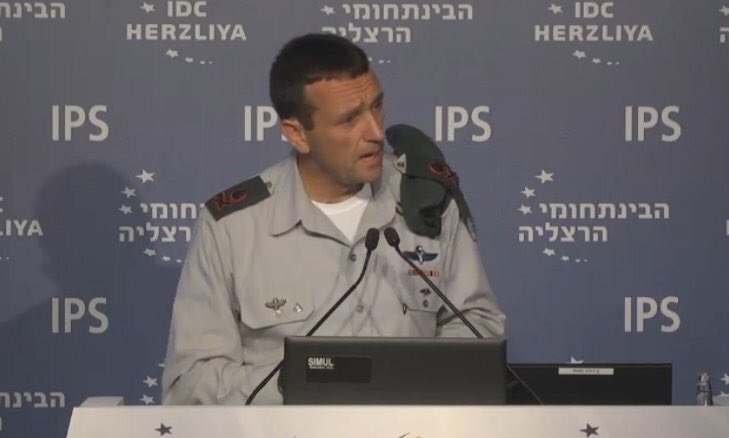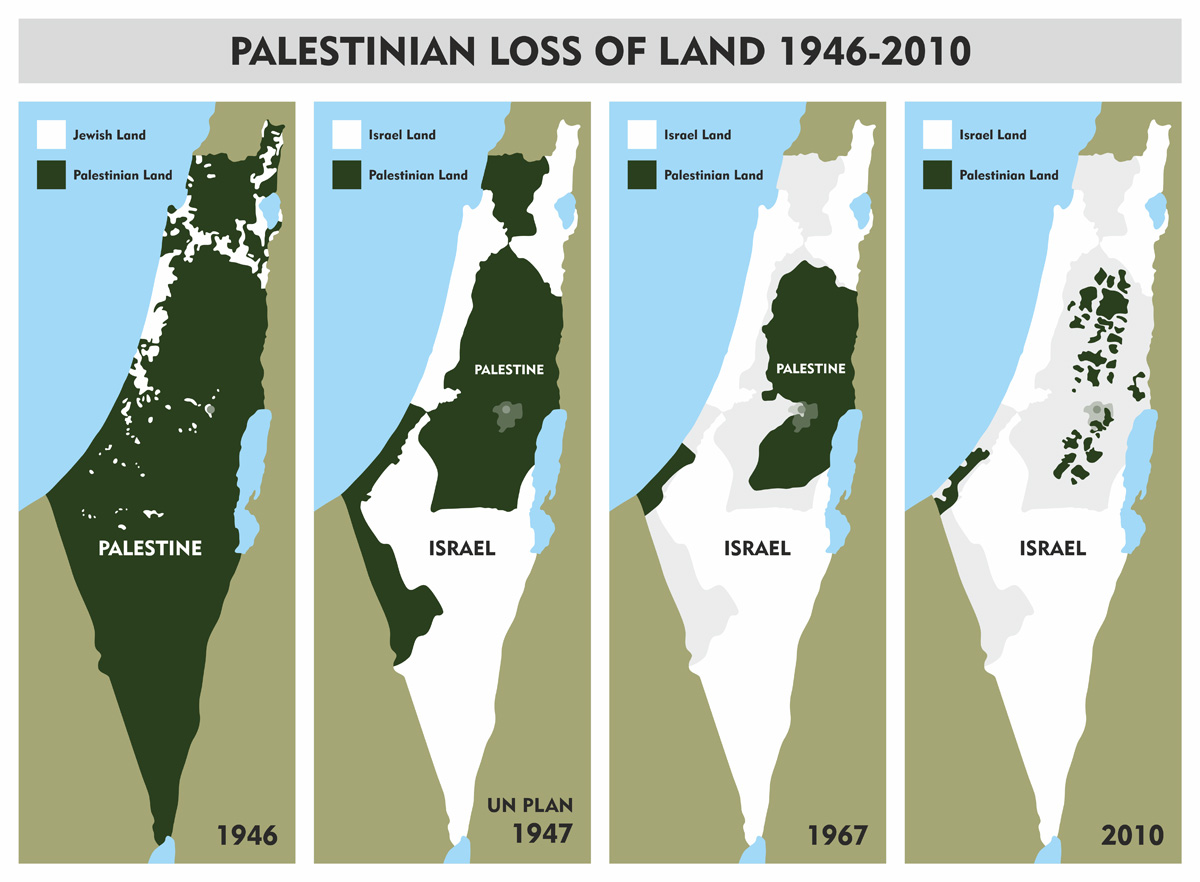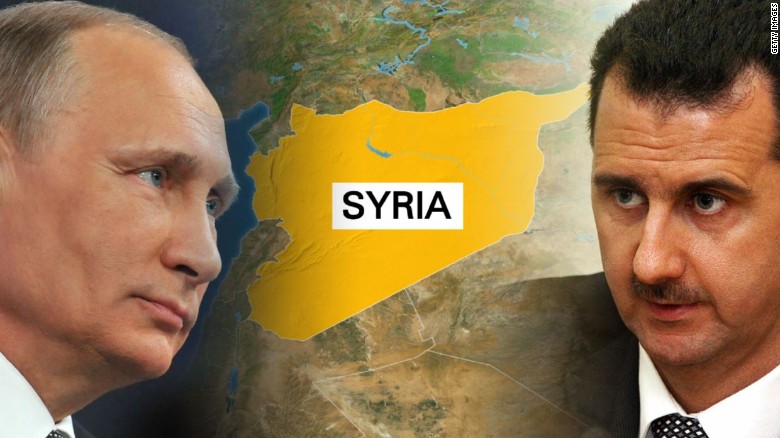Seize the Chaos
Israel, the Neocons, and their Bloody, Blundering ‘Art’ of War
by Dan Sanchez
Israel lacks a national motto. If its leaders are looking for a Latin one, “carpe chaos” would be an apt and honest choice.
“Seize the chaos” is half of Israeli foreign policy in a nutshell (the other half being the instigation of that chaos in the first place). Indeed, even its friends in the media cannot help but put it in such terms. For example, The New York Times recently reported about the:
“…many Israeli leaders and thinkers seizing on the chaos in Syria to solidify Israel’s hold on Golan.”
This refers to the Golan Heights, which Israel captured from Syria in 1967 and has occupied ever since. Even the Israel-enabling United Nations considers that occupation and subsequent annexation to be unjust and illegal. Returning Golan to Syria has long been advanced as part of a potential peace deal.
But now, Israel is using the civil war in Syria as an excuse to expand settlements in the Golan Heights; a senior minister wants 100,000 new residents in the next five years. Its potential uses are manifold:
This is Israel’s usual M.O. in the Palestinian West Bank as well: forging ahead with illicit settlements to establish “realities on the ground” that will be too intractable to reverse, thereby fixing the occupation permanently in place.
Advocates of the new Golan settlements defend them by citing the chaos in Syria:
“With Syria ‘disintegrating’ after years of civil war, they argue, it is hard to imagine a stable state to which the territory could be returned.”
The Times quotes Israeli MP Michael Oren who adds a blatant lebensraum argument to the case for good measure:
“We need places to build, and the world doesn’t want us to build in the West Bank. I don’t think anyone in the world can come at us and say we’re building on land that’s going to be part of a peace deal if we build on the Golan Heights.”
“Seize the chaos” is not a new doctrine: neither is it limited to Israeli halls of power. A veritable “carpe chaos” manifesto was written in 1996 for a Washington think tank by David Wurmser, an Israel-first neocon (but I repeat myself) who would later play a key role in the Bush administration’s drive to the Iraq War: advising Dick Cheney in the Vice President’s Office, assisting John Bolton at the State Department, and fabricating fanciful “connections” between Iraq and Al Qaeda at the Department of Defense.
In “Coping with Crumbling States: A Western and Israeli Balance of Power Strategy for the Levant,” Wurmser made a case for “limiting and expediting the chaotic collapse” of the Baathist governments in Iraq and Syria.
Wurmser predicted that “Baathism’s days are numbered,” due to its own inherent failings as a stable basis for statehood. Indeed, he argued, Arab nationalism in general was unsuitable for the Arab people, given their particularist and tribal tendencies. Therefore, its adoption can only condemn Arab countries to forever “fluctuate between repression and anarchy.”
In particular, the Gulf War had “accelerated Iraq’s descent into internal chaos.” To Wurmser, this made the Middle East of 1996 resemble Europe of 1914. Just before World War I, the Ottoman Empire had long been dubbed “the sick man of Europe.” Its imminent demise was beyond doubt; what was in question was who would get to despoil its corpse.
In 1996 Iraq was “the sick man of the Middle East.” Wurmser predicted that, after the inevitable downfall of its ruler Saddam Hussein, Iraq would be dominated either by the Baathist regime in Syria or the “Hashemite” royal house in Jordan.
He characterized Iraq not as any serious threat to Israel or the West but as “the prize” in a Middle Eastern game of thrones:
“The prize itself is more powerful than any of the neighbors that covet it. Iraq, a nation of 18 million, occupies some of the most strategically important and well-endowed territories of the Middle East.”
Wurmser called for the West and Israel to help the Hashemite monarch of Jordan win this game of thrones by enthroning one of his kin as king of Iraq. He advanced what he termed Jordan’s “Hashemite option for Iraq” as a far superior alternative to a Syrian-dominated continuation of Baathist Arab nationalism. The former, he averred, is “more solid and traditional,” and:
“The Hashemites alone are adept enough in forging strong tribal, familial and clan alliances to create viable nations in the Levant.”
Of course Wurmser’s amateur sociological analysis is poppycock, and the real advantage the neocons saw in the “Hashemite option” was that the royal house of Jordan is obedient to Israel because it is a wholly-owned western client completely dependent on the hundreds of millions of dollars in foreign aid the US feeds it every year.
Indeed, Wurmser hinted at this real reason when he argued that, if Iraq were to go Hashemite:
“…then Syria would be isolated and surrounded by a new pro-western Jordanian-Israeli-Iraqi-Turkish bloc…”
Thus isolated, Baathist Syria’s own inevitable “chaotic collapse” could then be “expedited.” And the expanded pro-western bloc could:
“…contain and manage… the scope of the coming chaos in Iraq and most probably in Syria.”
This was the “balance of power strategy” Wurmser proposed for the West and Israel, to replace the despised:
“…quest for ‘comprehensive peace — including its ‘land for peace’ provision, with Syria.”
Nineteen years later, Wurmser must now be elated that the Golan Heights are, as discussed above, being taken off the table for any future “land for peace” deals thanks to his hoped-for chaotic collapse in Syria.
In fact, mere months before he wrote “Coping with Crumbling States,” Wurmser made the case for implacable antagonism toward Syria as a preferred alternative to returning Golan in particular:
“Given the nature of the regime in Damascus, it is both natural and moral that Israel abandon the slogan ‘comprehensive peace’ and move to contain Syria, drawing attention to its weapons of mass destruction program, and rejecting ‘land for peace’ deals on the Golan Heights.”
Wurmser wrote this in the infamous policy paper “A Clean Break: A New Strategy for Securing the Realm,” which was addressed, not to Washington, but to Tel Aviv (indicating his true loyalties).
In “A Clean Break,” Wurmser even more expressly made the case for outright regime change in Iraq as a “means” of “weakening, containing, and even rolling back Syria.” (This in turn was imperative because, “Syria challenges Israel on Lebanese soil.”)
“A Clean Break” was written under the auspices of a “study group” headed by Wurmser’s mentor Richard Perle and including fellow Perle-protege Douglas Feith. This is extremely significant because Perle and Feith, like Wurmser, also played key roles in the Bush administration’s war drive.
For more details on both the “Lebanese connection” mentioned above and the role of the “Clean Breakers” in starting the Iraq War, see my essay, “Clean Break to Dirty Wars.”
Indeed, it is Washington’s Israeli-occupied foreign policy that has enabled Israel’s “seize the chaos” doctrine by using America’s vast imperial might to create so much seizable chaos in the first place.
As it turned out, Iraq was not nearly as mired in mayhem or blundering toward the brink as Wurmser judged in 1996. At the dawn of the 21st century, Saddam was as firmly ensconced in power as ever. So much for Wurmser as a geopolitical analyst.
This posed a problem. There was no chance of “expediting” a “chaotic collapse” that wasn’t there; a process has to exist first before it can be accelerated. So Wurmser and the other neocons in the Bush administration had to cook up a collapse from scratch themselves.
And it took a full-scale invasion and occupation by a global superpower to make this particular Leninist “omelet,” at the cost of a prodigious amount of “broken eggs”: 4,425 American lives and $1.7 trillion.
But the neocons and Israel finally did get their longed for chaotic collapse in Iraq, along with the deaths of over a million Iraqis and the displacement of millions more. This blood-soaked business is what they call “statecraft.”
Yet, even then, the best laid plans of the neocons and Likudniks still completely failed to pan out.
In both of his seminal strategy documents of 1996, Wurmser imagined that if the Hashemites were installed in Iraq, they could use their influence with a certain prominent cleric there to turn the Shiites of Syria and Lebanon against Assad, Iran, and Hezbollah.
And the “Coping” report envisioned a supporting role in that project for Ahmed Chalabi, identified by Wurmser as “one of the most prominent of the Iraqi opposition figures to Saddam” and “himself a Shiite and a close, long-time Hashemite confidant.” Wurmser further anticipated that:
“…pro-Jordan Iraq Shiites as Ahmed Chalabi… would define the Iraqi Shiite community after Saddam’s removal.”
By the Iraq War, the neocons had given up on outright enthroning a Hashemite in Baghdad. It’s one thing to coordinate something like that from behind the scenes, but installing a royal despot through a high-profile American war would have made for unacceptably bad press for Washington.
So Perle and Company settled for a “democratic” “Hashemite option.” In this Plan B, “Hashemite confidant” Ahmed Chalabi graduated from a supporting to a leading role in Israel’s plan for the new Iraq.
Chalabi had long delighted the neocons by feeding Washington bogus “intelligence” on Iraqi weapons that eventually helped to justify the US invasion. On the basis of this rapport, Chalabi assured the neocons that, as a leading light in “democratic” Iraq, he would steer state policy in Israel’s favor. The neocons even swallowed his pledge to build a pipeline for them from Iraq’s oilfields to an Israeli refinery and port.
None of Chalabi’s promises ever manifested. As it turned out, Chalabi was just as much an agent of Iran (enemy to both Saddam and Israel) as he was a “Hashemite confidant.” For more details on this, see the amazing article, “How Ahmed Chalabi Conned the Neocons.”
The neocons and Israel got their war and collapse in Iraq, but it blew up in their faces. The new US-armed Iraqi government, as well as the Shiite militias that do most of its fighting, became dominated, not by loyal Jordan, but by hated Iran. Oops.
And after the war, the neocons were faced, not with Wurmser’s anticipated “Jordanian-Israeli-Iraqi-Turkish bloc,” but what they perceive as an anti-Israel “Shia crescent” including Iran, Iraq, Syria, and (most importantly) Hezbollah in Lebanon. Far from being isolated, Syria seemed to have more friends than ever. Oops.
But Israel sure as hell wasn’t going to leave bad enough alone. Where the subtleties of neocon “strategists” miserably failed, Israel’s influence over the sheer wealth and brute power of the US empire (what Wurmser has called its “raw capability”) would have to make up the difference once again.
So for the sake of Israel, and since at least 2007, Washington, along with its regional allies, has been waging a broad covert proxy war to undermine the “Shia crescent.” This policy pivot, which legendary journalist Seymour Hersh dubbed “The Redirection,” has involved supporting Sunni Islamist mujahideen in Lebanon, Syria, and Iran.
Then, after the 2011 “Arab Spring” of popular uprisings reached Syria, “The Redirection” went into overdrive. The US-led regional coalition (Turkey, Jordan, Saudi Arabia, Qatar, etc) has been strenuously trying to overthrow the Syrian regime of Bashar al-Assad since at least 2012 by heavily sponsoring an insurgency led by jihadists including Al Qaeda and ISIS .
Israel has also been contributing to the cause of chaos more directly. Like a prizefighter’s “cutman,” the Israeli military has stood in Al Qaeda’s corner, taking in its wounded terrorist “rebels,” patching them up, and then sending them back into Syria to resume fighting.
In Syria too, the neocons and Israel have finally seen their longed for chaotic collapse, to the tune of a quarter of a million Syrian deaths and millions more displaced (many fleeing to Europe or drowning en route).
As discussed above, Israel has seized on the chaos it has unleashed on its northern neighbor as an excuse for expanding settlements in the Golan Heights.
Moreover, whenever that chaos even slightly spills over into Golan, Israel has been seizing that as a pretext for still more war.
Syrian soldiers are desperately battling Al Qaeda just north of Golan. Whenever a shell strays into the Heights (almost always exploding harmlessly in some unoccupied field), Israel responds by bombing Syrian military positions, thus effectively serving as Al Qaeda’s air force as well as its combat medic.
It does this regardless of (and generally clueless as to) who actually fired the offending projectile: whether it was the Syrian army, Al Qaeda, or any other faction. As CBS News related in a report of recent such strikes:
“Lt. Col. Peter Lerner, an Israeli military spokesman, said in a statement that Israel holds the Syrian military ‘responsible and accountable for any aggression emanating from Syria.’”
Israel’s self-righteously sociopathic behavior toward Syria and the Golan Heights beggars belief. It’s like some wealthy homeowner taking over his poor neighbor’s backyard and then sending a gang of crazed ruffians to invade his home. Then in the ensuing brawl, when something crashes through the neighbor’s window onto the seized yard, the land thief yells from a balcony, “Why can’t you get your house in order!” and fires at him with a shotgun. Then the thief walks back to his room muttering to himself, “What a hopeless basket case! How I’m definitely not giving him back his yard.”
What makes it especially incredible is that the ruffians in the real-life scenario are Al Qaeda and ISIS. But from the twisted perspective of Israel and the neocons, it makes perfect sense.
Even way back in 1996, Wurmser was already stressing in his “Coping” report that Arab nationalism must be considered enemy number one, and that Islamic fundamentalism was only a distant second.
Wurmser flat-out rejected any pragmatic detente with the Baathists, even for the sake of having a “bulwark” against the spread of radical Islam. He despised any such “peace process” as “prop[ping] up secular-Arab nationalism in its crumbling weakness.” He contended that such a policy is:
“…anchored to the belief that [secular-Arab nationalism] can be “reformed” enough to be resurrected as a bulwark against Islamic fundamentalism. Yet, one of the main strategic objectives of the peace process is to perpetuate Levantine secular-Arab nationalist regimes. Indeed, the previous Israeli government believed that, “[Israel’s] role is to protect the existingregimes, to prevent or halt the process of radicalization, and to block the expansion of fundamental religious zealotry.”
But the present study… shows that the pursuit of comprehensive peace and the effort to harness secular-Arab nationalist regimes such as Syria’s in the battle to stem the fundamentalist tide is not only futile. It is also a dangerous strategic misstep. ”
Wurmser argued that US support for secular Arab-nationalist Iraq in its brutal invasion of fundamentalist Iran in the 1980s was “an explosive mistake,” as Iraq’s subsequent “rogue” invasion of Kuwait demonstrated. And so:
“The same lesson should now be applied to Syria. It is in both Israel’s and the West’s interest to expedite the demise of secular-Arab nationalism. (…) The pursuit of the peace process is preventing this.”
Secular-Arab nationalism, Wurmser insisted, is nothing but an “obstacle” to introducing better defenses against and alternatives to fundamentalism, and to “more healthy future” for the Arab world.
“The West and its local friends must engage fundamentalism with better associates than Baathists.”
Such thinking would seem to explain the otherwise baffling tendency of today’s policy makers in Washington and Tel Aviv to stubbornly insist on the overthrow of one secular-Arab nationalist regime after another — Saddam in Iraq, Gaddafi in Libya, and now Assad in Syria — even though it invariably leads to explosive growth for extreme Islamist groups in membership, might, and conquests.
Yet, one would expect the 9/11 attacks to have pulled the rug out from under this rationale. Aren’t the 9/11 attacks why the US is raining bombs throughout the Muslim world in the first place? And secular-Arab nationalists didn’t knock down the Twin Towers; Islamic fundamentalists did.
Even ignoring the crucial issues of empire and blowback, and taking militaristic “offense as the best defense” premises for granted, shouldn’t Islamist terror organizations — which have actually attacked American cities — be menace number one, and secular-Arab nationalist states — which have never dared — be at most a distant second?
And so, especially after 9/11, wouldn’t creating “jihadist wonderlands” throughout the Middle East by decapitating the secular-Arab nationalist regimes that are the jihadists’ chief mortal enemies be the last thing our government should do? Especially when one of the groups thriving the most amid the chaos is Al Qaeda, the very perpetrators of the 9/11 attacks?
Not from Israel’s perspective. Michael Oren (the lebensraum-loving Israeli official mentioned above) has made it crystal clear that Wurmser’s priorities are still official state policy. In 2013, at the end of his tenure as Israeli ambassador to the US, Oren delivered this parting message through The Jerusalem Post:
“‘The initial message about the Syrian issue was that we always wanted [President] Bashar Assad to go, we always preferred the bad guys who weren’t backed by Iran to the bad guys who were backed by Iran,’ he said.
This was the case, he said, even if the other ‘bad guys’ were affiliated to al-Qaida.
‘We understand that they are pretty bad guys,’ he said, adding that this designation did not apply to everyone in the Syrian opposition. “Still, the greatest danger to Israel is by the strategic arc that extends from Tehran, to Damascus to Beirut. And we saw the Assad regime as the keystone in that arc. That is a position we had well before the outbreak of hostilities in Syria. With the outbreak of hostilities we continued to want Assad to go.’”
Then in 2014, just after ISIS advanced through Iraq to Mosul and declared itself a Caliphate, Oren said this regarding the conflict between the Shiite-led government of Syria and the Sunni extremists overrunning eastern Syria and western Iraq:
“From Israel’s perspective, if there’s got to be an evil that’s got to prevail, let the Sunni evil prevail.”
Lest he be misunderstood, by “Sunni evil” Oren is here specifically referring to ISIS. This is clear, because seconds before, he conveyed his recognition of the fact that they are indeed “bad guys” by referring to a specific mass-execution that ISIS had just committed.
That is Israel’s position. “Assad must go. We prefer Al Qaeda. Let ISIS prevail.”
In other words: “To hell with your towers, America. And your big city residents can go to hell too, where they can burn along with the Syrian victims of Al Qaeda and ISIS for all I care. Israel has its own regional strategic goals to think of. Now get back to work to pay your taxes so your government can keep decimating Muslim countries for me and my power clique and keep sending us billions of dollars in foreign aid.”
This from “America’s greatest friend in the Middle East.”
Israel would have preferred to have the Levant ruled by stable sock puppets of the West. But failing that, it would much rather be surrounded by an extremist-stricken Muslim maelstrom of mutual massacres than to have in its neighborhood even a single secular-Arab nationalist state with an independent rational leadership, a steady tax base, and a disciplined military.
And for 14 years, Washington has been adopting Israel’s perspective on this question with incredible fidelity. And as a recently-released government intelligence document revealed, it has done so knowing full well that it would likely result in the Levant being overrun by America-hating Islamic terrorists.
And thus it is demonstrated that the only enemy of the American people greater than Israel’s government is our own.
David Wurmser warned that if the West did not adopt his warlike strategic vision, it:
“…will still not get peace. Instead it will look beyond Israel’s borders at secular-Arab nationalism’s final legacy: a chaotic sea… (which will painfully intrude on the West)…”
The West has indeed adopted the neocon/Israeli strategy, precipitating the “chaotic collapse” of secular-Arab nationalism in Iraq, Libya, and Syria. But the chaos has not been “contained and managed” as Wurmser anticipated. Neither has it cleared the way for “a more healthy future” as he promised.
Instead it has created exactly what Wurmser said it would prevent: a “chaotic sea” immersing the entire Middle East and “painfully intrud[ing] on the West.” That chaotic sea is even lapping up onto the shores of Europe in the form of the refugee crisis.
And now that Russia has been drawn into the Syrian war, where its bombers and troops operate at cross purposes with American bombers and proxy fighters, the chaotic sea threatens to become a thermonuclear lake of fire engulfing the whole world.
Israel may eventually see every secular-Arab nationalist regime that defies it fall. It may yet see Assad die in some humiliating way, just as it saw Saddam hanged before a jeering crowd and Gaddafi sodomized in the street. It may also finally see American bombs raining down on Tehran.
Israeli troops may once again march upon Beirut, and this time see every important member of Hezbollah executed or buried under a prison. (It’s extremely unlikely, but it’s conceivable.) It may then have total sway over Lebanon and untrammeled access to all its natural resources (including the coveted Litani River).
Israel may never have to give the Palestinians freedom, restitution, or peace. And it may never have to give up any of its territorial spoils of war: the West Bank, the Gaza Strip, East Jerusalem, or the Golan Heights. Golan’s “places to build,” its “strategic plateau,” its “prize apples,” and its “vast playground” spaces may be Israel’s until the end of mankind.
But if that end is a decade from now — or a day — will it really be worth it?











